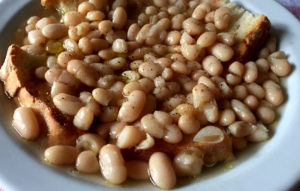Articolo disponibile anche in: Italian
The closure of bars, hotels and restaurants to stem the Covid-19 pandemic could lead to a 50% cut in the value of wine sales in Europe.
It is the alarm launched by Coldiretti on the basis of the forecasts of the OIV (World Organization of Vine and Wine) which provides for a slowdown for the sector worldwide.
“Weighing down – Coldiretti underlines – is the restaurant lockdown but also the “zeroing” of the tourist flow which are not compensated by the increase in sales in supermarkets where the offer is more oriented towards low prices and an offer on more products consumer goods”.
“A trend that also penalizes Italy – says Coldiretti – which ranks as the world’s leading wine producer followed by France and Spain, which together account for 25% of world wine consumption. In Italy, almost 4 out of 10 Italian wineries ( 39%) record a sharp drop in turnover with the liquidity alarm that puts the future of Italian wine at risk, giving rise to employment opportunities for 1.3 million people for a turnover of 11 billion”.
According to the Coldiretti / Ixé survey, the forced closure of hotels, agritourisms, bars and restaurants in Italy and abroad weighed on the failure to sell quality wines, with a sharp drop in exports, also exacerbated by logistical difficulties and disinformation in a sector where shipments outside the national border reached 6.4 billion euros in 2019, the highest ever, equal to 58% of total turnover.
Meanwhile, Coldiretti has submitted to the Government the “plan to save vineyards with which, through voluntary distillation, it is planned to remove from the market at least 3 million hectoliters of generic wines to be transformed into disinfectant alcohol for sanitary uses”.
“The measure – concludes Coldiretti – would also have the important effect of favoring the purchase of Italian alcohol which on the shelves was the product which recorded the greatest increase in sales according to IRI, but also of reducing any production surpluses. The plan Coldiretti also plans the green harvest on at least 30,000 hectares for a reduction of at least another 3 million hectoliters of production on quality wines in order to avoid an excess supply, given the consequences of the pandemic on international consumption”.


